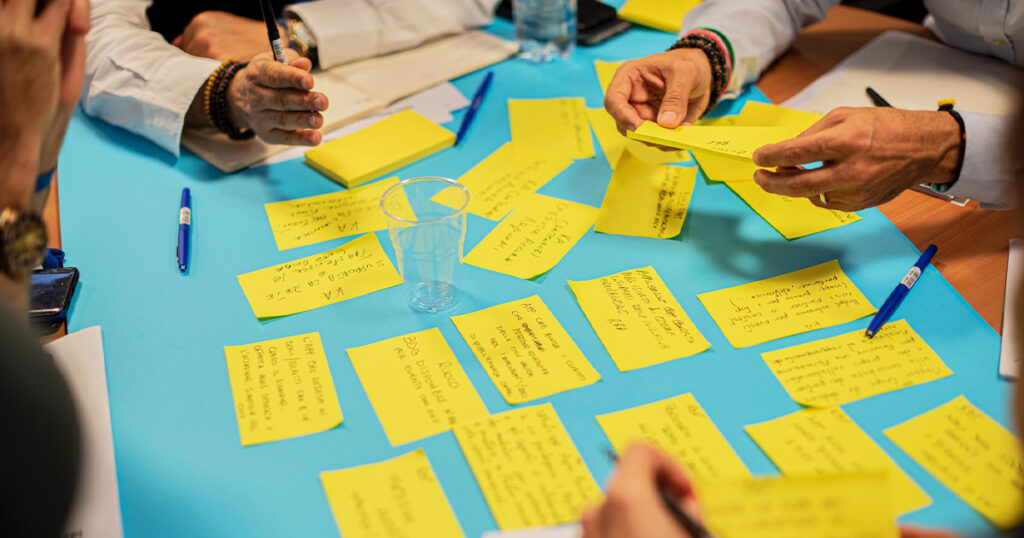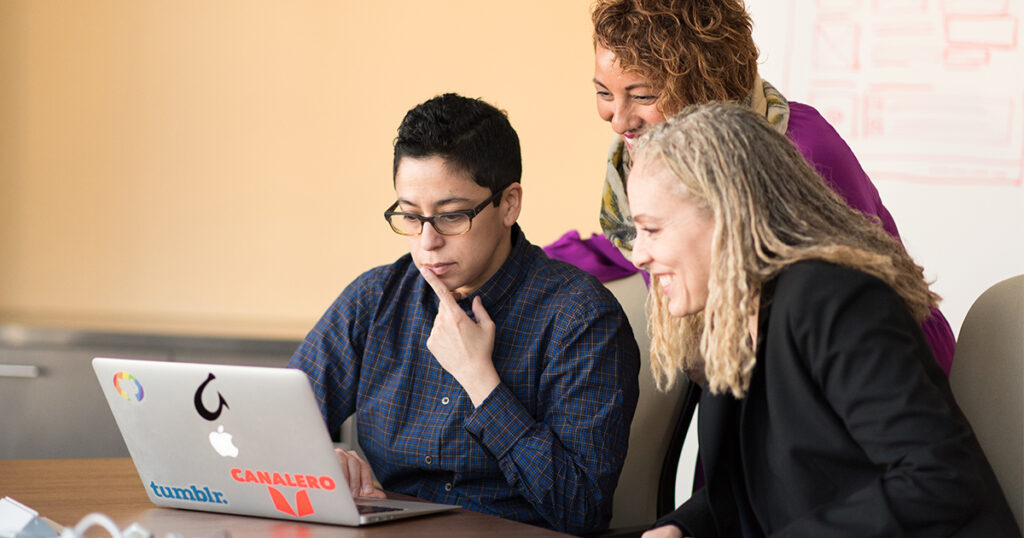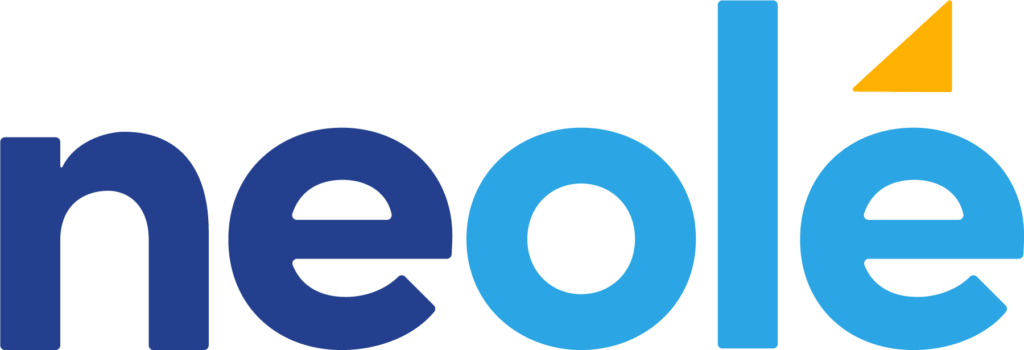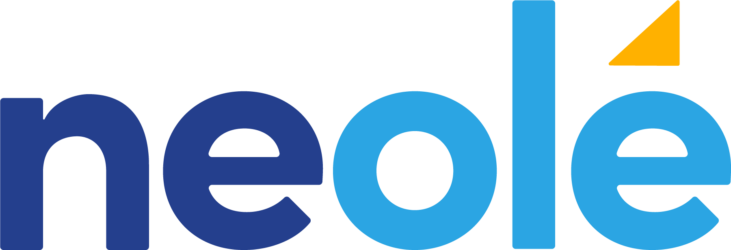Collaboration is the action of working with someone to achieve an agreed-upon objective. Whether it’s working with your family to get dinner on the table or working on a multi-organizational project with life-changing outcomes, we depend on the ability to collaborate successfully in every aspect of our lives. Struggling with collaboration is not an option!
Likewise, organizations count on teams of employees to collaborate successfully as they undertake activities to meet their objectives. Without successful collaboration, creativity and innovation would be limited, and the ability to meet organizational goals would be impacted. Leaders need to be on the lookout for signs that their teams are struggling with collaboration and, when they see a problem, take appropriate action! But what are the signs?

Look for these signs your team is struggling with collaboration
Here are six signs that your team is struggling with collaboration:
Not achieving objectives
Is your team having trouble achieving their objectives in a timely fashion? Are milestones being missed?
Can’t agree on the objective or outcome
Was the objective explained to everyone and do you have buy-in? It’s quite possible that individuals on the team are not aligned with the organizational or team values or mission, or didn’t have any input to the objectives or outcomes that they are working towards.
Lack of new, unique ideas
The team is stuck, ideas are representative of the status quo, and only one or two people are contributing ideas. Optimum creativity requires time, process and trust that all ideas will be considered equally and no idea is too wild or silly. Signs that there’s trouble include silence during meetings, a reluctance to contribute ideas, and fear that their ideas will be shot down. It’s important to ensure that everyone also knows what they are generating ideas for and why.
Workload not shared equally
Do one or two people constantly shoulder the load? You could have a case of “Quiet Quitting,” where some team members are doing the bare minimum to do their jobs, or you could have a case of one or two people not giving space to their teammates to contribute their knowledge. Either will stifle creativity and foster feelings of resentment.
Arguing or a lack of empathy
Do arguments break out in meetings? Are you noticing some microaggressions against certain team members? Are some team members expressing impatience with their teammates? Poorly run meetings, lack of process for collaboration, and no opportunity to get to know their teammates could be to blame.
Miscommunication and/or a lack of communication
Team members are not communicating, project management info is not getting updated (if there’s even a system in place!) reports are late or missing, information is incorrect, people are not prepared to speak during presentations.
If you’ve noticed that the signs of struggling with collaboration listed above are similar to signs of disengaged employees, you are right. Disengaged team members will struggle with collaboration, and if you’ve got a team that is not performing as well as it once did, consider whether one or more team members are feeling disengaged.
What has collaboration got to do with engagement?

Disengagement results from team wellbeing that has been compromised. Team wellbeing has many facets. Thinking beyond physical and emotional wellbeing, team wellbeing also includes social connection and intellectual wellbeing. Team members who are not physically well, who are depressed or are otherwise struggling with their mental health will find it difficult to stay engaged at work.
Social connection, which has been compromised in many remote or hybrid work situations, builds trust between team members (and the leader and teams) and helps to form empathy as people learn about each other. Trust and empathy are essential for collaboration – and trust between team members is a leading factor for successful collaboration.
Intellectual wellbeing touches on creativity, as well as meaning and purpose. Team engagement suffers when employees don’t have time in their calendars for creativity, when they’re feeling disconnected from other team members, and when they don’t feel like their contribution of ideas will be welcomed and appreciated.
Disengagement also occurs when an employee doesn’t feel like the organization’s values and mission align with their own.
Unfortunately, disengagement is contagious; one disengaged team member who shares their discontentment openly, doesn’t pull their weight, is absent often, or who is doing the bare minimum of work can begin to make other team members question the degree to which they care about their job, team and organization.
What can I do?
As a leader, you can directly impact your team’s ability to collaborate by creating a workplace culture that supports collaboration. We like to call this an “ecosystem for collaboration.” This ecosystem is essential for building trust, connection and creativity on your team. Building and sustaining an ecosystem for collaboration requires ongoing work, and includes:
- Providing opportunities for team members to connect socially and build trust
- Genuinely welcoming new ideas, and making time for team members to contribute their new thinking
- Providing feedback frequently, and, as a leader, showing appreciation often (we suggest using the POINt method of providing feedback on ideas, which starts with the positive and prevents people from being judgmental)
- Giving people time to be creative and strategic by encouraging them to book space in their calendars for this important work
- Co-creating a Living Team Charter with your team, which lays out the team’s mission and values, and how everyone will work together and support their wellbeing. A Living Team Charter is updated at regular intervals based on the team’s experience of working with the charter. By providing a common, co-created roadmap for the team, a Living Team Charter builds trust and provides process
- Making sure meetings are a welcoming, pleasant experience, and are run efficiently with everyone in attendance clear of their roles and responsibilities.
For specific team collaborations (e.g., a planned project), make sure that:
- Everyone is clear on what they are supposed to achieve, the urgency of the quest, and that you have buy-in from everyone involved
- The collaboration is properly resourced with the right people, an adequate amount of time, money, and permission for everyone to make the project a priority (especially if you are pulling people from other teams; make sure their team leads are on board!).
- There is an understood process for the collaboration, and the team has agreed upon someone to lead the process (or you have hired an external facilitator). There are many ways to facilitate collaboration, including one of our favourites, Creative Problem Solving.
- The team has the necessary tools to collaborate. Tools can include virtual flipcharts and sticky note platforms for brainstorming (we like Stormz), collaborative documents such as Google Docs or Google Sheets, a project management system to organize and track project tasks, and a chat platform for ongoing asynchronous communication.
If you are struggling with collaboration on your team, you’re not alone! We polled our network of leaders to find out what we should focus on at our next free workshop and it’s clear that many remote and hybrid teams continue to struggle with effective collaboration. So, we’re dedicating our next public workshop to helping leaders improve team collaboration. Together we’ll delve into the causes of poor collaboration, the factors for successful collaboration, and tools you can use to support your team’s collaboration. Join us on November 18 for this free workshop on collaboration? Register here.
By Laura Bowley, Virtual Facilitator and Meeting Producer, Neolé Inc.







